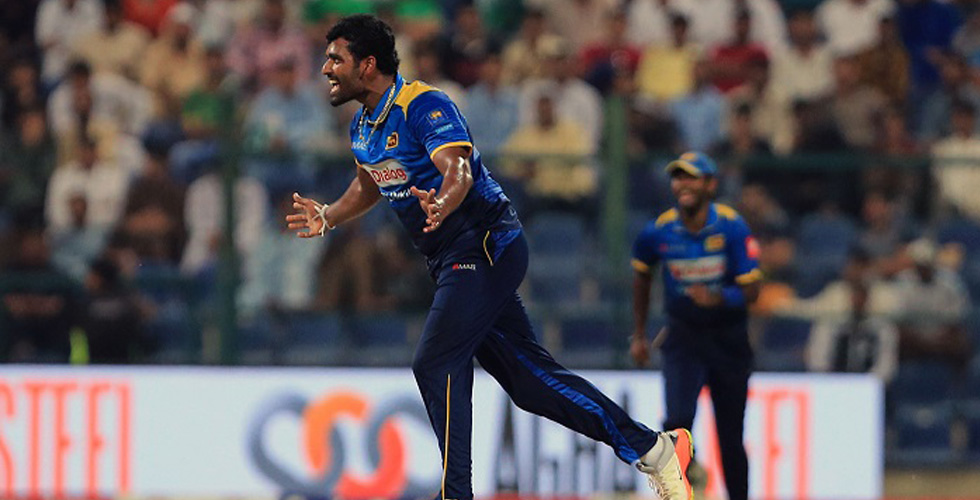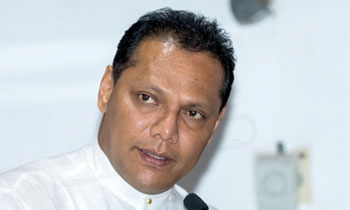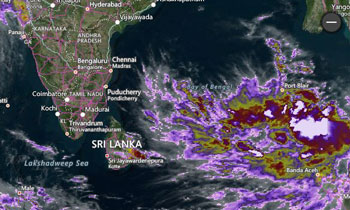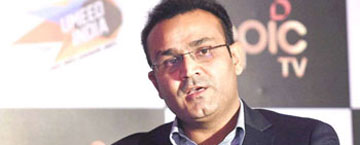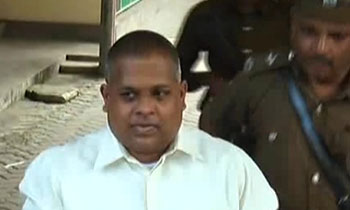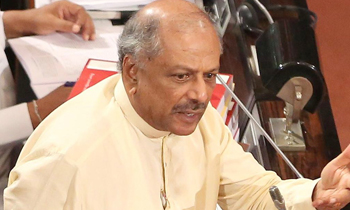
Subscribe
Login
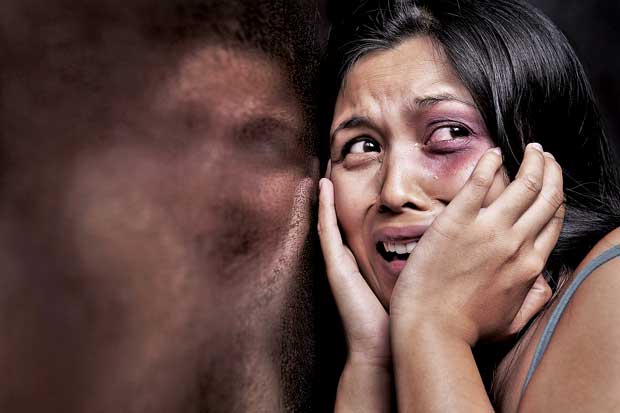
Every year, 25 November marks the UN’s International Day for the Elimination of all forms of Violence against Women and the beginning of 16 days of activism around ending gender-based violence.
The weeks of activism are particularly appropriate; the 25 November was chosen as it was on that day in 1960 that the Mirabal sisters, prominent political activists in the Dominican Republic, were assassinated by the country’s secret police. 
Sisters Patria, Minerva and Maria Teresa were victims of extreme violence, and were strangled and clubbed to death at the hands of men representing a repressive regime. However, their lives were spent loudly and bravely resisting that same regime. They were vocal opponents of the dictatorship they lived in, under President Trujillo, who Minerva had personally angered after rebutting his sexual advances. Some have argued that the killing of the Mirabal sisters - unpopular as it was with citizens of the Dominican Republic -laid the ground for Trujillo’s own assassination six months later.
More than 60 years after the Mirabal sisters were killed, the Day for the Elimination of all forms of Violence against Women reminds us that women of all creeds, religions, political persuasions and sexual orientations are still experiencing violence of epidemic proportions.
One in three women worldwide will experience gender-based violence in her lifetime, according to official UN figures. This includes the entire developed and developing world; countries at war or in crisis as well as those at peace and prospering nations under dictatorships and those with mature democracies. Nowhere is safe for all women.
"In fact, examples of violence against women include everything from human trafficking (70% of whose victims are women and girls, with 3 out of 4 of these being sexually exploited) to child marriage (Almost 750 million women and girls today were married before their 18th birthday"
Of course, violence against women covers a number of social ills, and manifests itself slightly differently across the globe. Nonetheless it is something that all nations have in common.
According to recommendations on tackling gender-based violence released in July by UN’s Committee on the Elimination of all forms of Discrimination Against Women (CEDAW): “Gender-based violence against women, whether committed by States, intergovernmental organizations or non-State actors, including private persons and armed groups,remains pervasive in all countries, with high levels of impunity. It manifests itself on a continuum of multiple, interrelated and recurring forms, in a range of settings, from private to public, including technology- mediated settings and in the contemporary globalized world it transcends national boundaries.”
In fact, examples of violence against women include everything from human trafficking (70 per cent of whose victims are women and girls, with 3 out of 4 of these being sexually exploited) to child marriage (Almost 750 million women and girls today were married before their 18th birthday and in some countries up to a third of adolescent girls report their first sexual experience as
being forced.
Mirabal sisters were victims of extreme violence
1 in 3 women worldwide experience gender-based violence
37 countries inluding SL, exempt rapists from prosecution
750 mn women and girls today were married before their 18th birthday
The UN website dedicated to highlighting the importance of the 25 November recalls many more facts and figures, all of them depressing and shocking in equal measure. For example, in terms of domestic and intimate violence, worldwide half of all women killed are killed by a family member or by their partner. By way of context, the figure is 1 in 20 for men.
Meanwhile, 37 countries worldwide – Sri Lanka being one of them - exempt rapists from prosecution if they are married to, or subsequently marry their victim. Faced with such irrefutable evidence of widespread harm being done to women, with little redress or justice served, it is easy to identify the need for these weeks of activism and reflection.
This year, the theme for the day was ‘Leave no one behind’. As the UN describes it: “[Although] gender-based violence can happen to anyone, anywhere; some women and girls are particularly vulnerable - for instance, young girls and older women, women who identify as lesbian, bisexual, transgender or intersex, migrants and refugees, indigenous women and ethnic minorities, or women and girls living with HIV and disabilities, and those in humanitarian crises.”
‘Leave no one behind’ is therefore about recognising a kind of double exposure to oppression, both due to being a woman, and as a result of another vulnerability that makes you a target for violence and abuse.
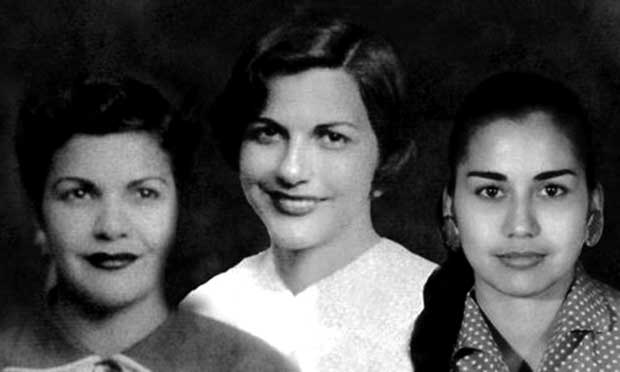 Mirabal sisters Patria, Minerva and Maria Teresa were victims of extreme violence, were strangled and clubbed to death in the Dominican Repulic in 1960
Mirabal sisters Patria, Minerva and Maria Teresa were victims of extreme violence, were strangled and clubbed to death in the Dominican Repulic in 1960
At organisations such as EQUAL GROUND, whose service users are all members of the lesbian, gay, bisexual and transgender (LGBT) community, they understand what it means to be vulnerable to violence and abuse. The kind of abuse perpetrated against women by both state oppression and violent acts by individuals is experienced similarly by LGBT people, many of whom are women as well, of course.
The stories of violence and abuse that we hear from LGBT people unveils a pattern of emotional, physical and sexual abuse, which they face as a direct result of their sexual orientation or gender
identity (SOGI).
Another similarity between the experience of gender-based violence and the kind levied at someone due to their SOGI is the environment of shame and secrecy that often sees abuse go unreported, and
therefore unpunished.
The ‘Break the Silence’ campaign, launched on 25 November this year, reached tens of thousands of people with a photography exhibition and public education posters on social media to illustrate the human suffering and injustice behind in the stories we hear every day from LGBT people in Sri Lanka.
"One in three women worldwide will experience gender-based violence in her lifetime, according to official UN figures. This includes the entire developed and developing world"
We know that lesbian and bisexual women are beaten up for being in relationships with one another. We hear of transmen, gay men and boys who are sexually abused by family members in attempts to ‘cure’ them of their gender identity, or as punishment for their sexual orientation. We know of transwomen who have been sexually abused by the law enforcement officers who should be protecting them.
All this being said, and we agree wholeheartedly with the UN that there are ways to end violence against women, just as it is possible to envisage a world without the persecution of LGBT people.We hope to use our activism to pay homage to the Mirabal sisters and all the brave women who have gone before us. Empowering survivors of violence and supporting them in educating their families and communities is the obvious first step.
I encourage anyone who has experienced violence as a result of their sexual orientation or gender identity to get in touch with organisations such as EQUAL GROUND.They can provide or signpost legal, medical or emotional advice, in complete confidence.
There is no good reason to keep quiet. Speak out. Break the silence.

Every year, 25 November marks the UN’s International Day for the Elimination of all forms of Violence against Women and the beginning of 16 days of activism around ending gender-based violence.
The weeks of activism are particularly appropriate; the 25 November was chosen as it was on that day in 1960 that the Mirabal sisters, prominent political activists in the Dominican Republic, were assassinated by the country’s secret police. 
Sisters Patria, Minerva and Maria Teresa were victims of extreme violence, and were strangled and clubbed to death at the hands of men representing a repressive regime. However, their lives were spent loudly and bravely resisting that same regime. They were vocal opponents of the dictatorship they lived in, under President Trujillo, who Minerva had personally angered after rebutting his sexual advances. Some have argued that the killing of the Mirabal sisters - unpopular as it was with citizens of the Dominican Republic -laid the ground for Trujillo’s own assassination six months later.
More than 60 years after the Mirabal sisters were killed, the Day for the Elimination of all forms of Violence against Women reminds us that women of all creeds, religions, political persuasions and sexual orientations are still experiencing violence of epidemic proportions.
One in three women worldwide will experience gender-based violence in her lifetime, according to official UN figures. This includes the entire developed and developing world; countries at war or in crisis as well as those at peace and prospering nations under dictatorships and those with mature democracies. Nowhere is safe for all women.
"In fact, examples of violence against women include everything from human trafficking (70% of whose victims are women and girls, with 3 out of 4 of these being sexually exploited) to child marriage (Almost 750 million women and girls today were married before their 18th birthday"
Of course, violence against women covers a number of social ills, and manifests itself slightly differently across the globe. Nonetheless it is something that all nations have in common.
According to recommendations on tackling gender-based violence released in July by UN’s Committee on the Elimination of all forms of Discrimination Against Women (CEDAW): “Gender-based violence against women, whether committed by States, intergovernmental organizations or non-State actors, including private persons and armed groups,remains pervasive in all countries, with high levels of impunity. It manifests itself on a continuum of multiple, interrelated and recurring forms, in a range of settings, from private to public, including technology- mediated settings and in the contemporary globalized world it transcends national boundaries.”
In fact, examples of violence against women include everything from human trafficking (70 per cent of whose victims are women and girls, with 3 out of 4 of these being sexually exploited) to child marriage (Almost 750 million women and girls today were married before their 18th birthday and in some countries up to a third of adolescent girls report their first sexual experience as
being forced.
Mirabal sisters were victims of extreme violence
1 in 3 women worldwide experience gender-based violence
37 countries inluding SL, exempt rapists from prosecution
750 mn women and girls today were married before their 18th birthday
The UN website dedicated to highlighting the importance of the 25 November recalls many more facts and figures, all of them depressing and shocking in equal measure. For example, in terms of domestic and intimate violence, worldwide half of all women killed are killed by a family member or by their partner. By way of context, the figure is 1 in 20 for men.
Meanwhile, 37 countries worldwide – Sri Lanka being one of them - exempt rapists from prosecution if they are married to, or subsequently marry their victim. Faced with such irrefutable evidence of widespread harm being done to women, with little redress or justice served, it is easy to identify the need for these weeks of activism and reflection.
This year, the theme for the day was ‘Leave no one behind’. As the UN describes it: “[Although] gender-based violence can happen to anyone, anywhere; some women and girls are particularly vulnerable - for instance, young girls and older women, women who identify as lesbian, bisexual, transgender or intersex, migrants and refugees, indigenous women and ethnic minorities, or women and girls living with HIV and disabilities, and those in humanitarian crises.”
‘Leave no one behind’ is therefore about recognising a kind of double exposure to oppression, both due to being a woman, and as a result of another vulnerability that makes you a target for violence and abuse.
 Mirabal sisters Patria, Minerva and Maria Teresa were victims of extreme violence, were strangled and clubbed to death in the Dominican Repulic in 1960
Mirabal sisters Patria, Minerva and Maria Teresa were victims of extreme violence, were strangled and clubbed to death in the Dominican Repulic in 1960
At organisations such as EQUAL GROUND, whose service users are all members of the lesbian, gay, bisexual and transgender (LGBT) community, they understand what it means to be vulnerable to violence and abuse. The kind of abuse perpetrated against women by both state oppression and violent acts by individuals is experienced similarly by LGBT people, many of whom are women as well, of course.
The stories of violence and abuse that we hear from LGBT people unveils a pattern of emotional, physical and sexual abuse, which they face as a direct result of their sexual orientation or gender
identity (SOGI).
Another similarity between the experience of gender-based violence and the kind levied at someone due to their SOGI is the environment of shame and secrecy that often sees abuse go unreported, and
therefore unpunished.
The ‘Break the Silence’ campaign, launched on 25 November this year, reached tens of thousands of people with a photography exhibition and public education posters on social media to illustrate the human suffering and injustice behind in the stories we hear every day from LGBT people in Sri Lanka.
"One in three women worldwide will experience gender-based violence in her lifetime, according to official UN figures. This includes the entire developed and developing world"
We know that lesbian and bisexual women are beaten up for being in relationships with one another. We hear of transmen, gay men and boys who are sexually abused by family members in attempts to ‘cure’ them of their gender identity, or as punishment for their sexual orientation. We know of transwomen who have been sexually abused by the law enforcement officers who should be protecting them.
All this being said, and we agree wholeheartedly with the UN that there are ways to end violence against women, just as it is possible to envisage a world without the persecution of LGBT people.We hope to use our activism to pay homage to the Mirabal sisters and all the brave women who have gone before us. Empowering survivors of violence and supporting them in educating their families and communities is the obvious first step.
I encourage anyone who has experienced violence as a result of their sexual orientation or gender identity to get in touch with organisations such as EQUAL GROUND.They can provide or signpost legal, medical or emotional advice, in complete confidence.
There is no good reason to keep quiet. Speak out. Break the silence.
